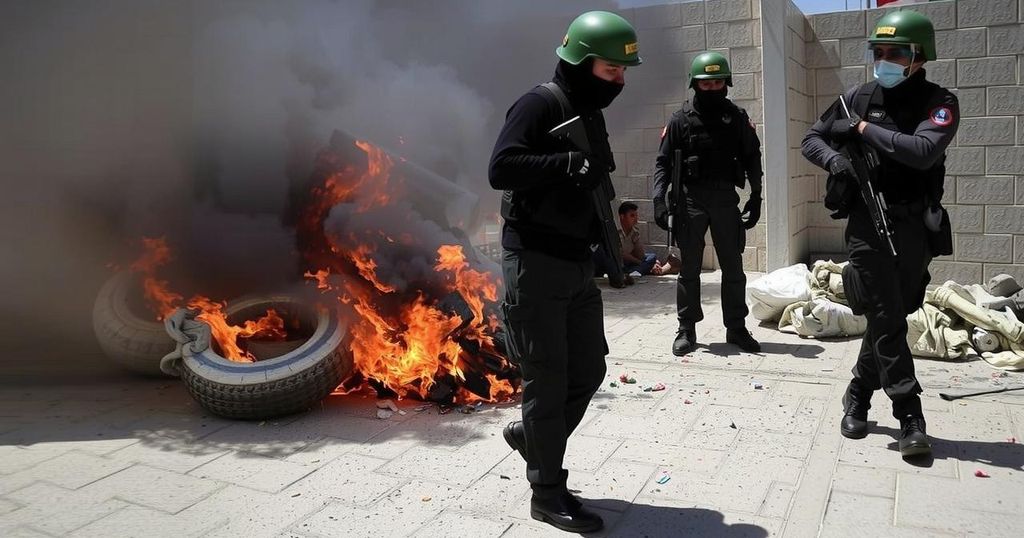Escalating Violence in West Bank: Israel Responds to Fatal Attack

On Monday, gunmen attacked a bus in the West Bank, killing three Israelis and wounding eight. The assailants remain unidentified, though Hamas praised the attack. Israeli leaders pledged severe consequences for those involved. The assault follows a significant rise in violence since Israel declared war on Hamas after October 7, resulting in considerable casualties on both sides.
On Monday, armed assailants opened fire on a bus and nearby vehicles in the Israeli-occupied West Bank, resulting in the deaths of three Israeli citizens and injuries to eight others. The identity of the gunmen remains unclear; however, Hamas commended the attack as a courageous act in light of the ongoing conflict. Israeli officials, including Defense Minister Israel Katz and Prime Minister Benjamin Netanyahu, responded resolutely, vowing to bring the attackers to justice and emphasizing that those who support such violence will face severe repercussions. This escalation of violence occurs amidst a backdrop of heightened tensions following Israel’s declaration of war on Hamas after a previous assault on October 7, which has significantly increased casualties on both sides.
In the wider context of the Israel-Gaza conflict, recent reports highlight that casualties have surged, with over 800 Palestinians reported killed by Israeli forces in the West Bank since the onset of hostilities. This week alone, at least 49 individuals were killed in Gaza due to Israeli airstrikes targeting Hamas. Furthermore, humanitarian conditions in Gaza have deteriorated sharply, with only one hospital remaining operational and severe shortages in medical supplies impacting the injured and sick alike.
As the conflict continues, international humanitarian efforts are hampered by repeated attacks on health facilities and severe food shortages, underlining the dire need for aid and a resolution to the ongoing violence. Syrian officials, meanwhile, are advocating for the lifting of U.S. sanctions on Syria, citing economic difficulties impeding their recovery efforts. In this intricate geopolitical landscape, the demands for inclusive dialogue and support for all affected groups remain critical.
The Israel-Gaza conflict has intensified following a predicative attack by Hamas on October 7, 2023, during which Hamas militants killed approximately 1,200 Israelis. In retaliation, Israel declared war on Hamas, leading to a ground invasion that has resulted in significant casualties and displacement in Gaza. The situation has further escalated tensions in the West Bank, where Israeli troops have launched operations against perceived threats, leading to increased violence and casualties. The UN and other humanitarian agencies have raised alarms over the humanitarian crisis unfolding in Gaza, where medical facilities are overwhelmed and basic supplies are critically low, exacerbating the suffering of civilians caught in the conflict. Additionally, Syrian officials are advocating for the lifting of U.S. sanctions to facilitate recovery in their own war-torn country, adding another layer of complexity to the regional dynamics.
In summary, the current situation in the Middle East reflects a critical escalation of violence, particularly in the West Bank and Gaza, where fatalities are surging among both Israelis and Palestinians. The humanitarian crisis in Gaza has reached alarming levels, necessitating urgent international intervention and support. Amidst these hostilities, calls for a political resolution grow louder, emphasizing the importance of inclusive dialogue to achieve lasting peace and stability in the region.
Original Source: www.washingtonpost.com








